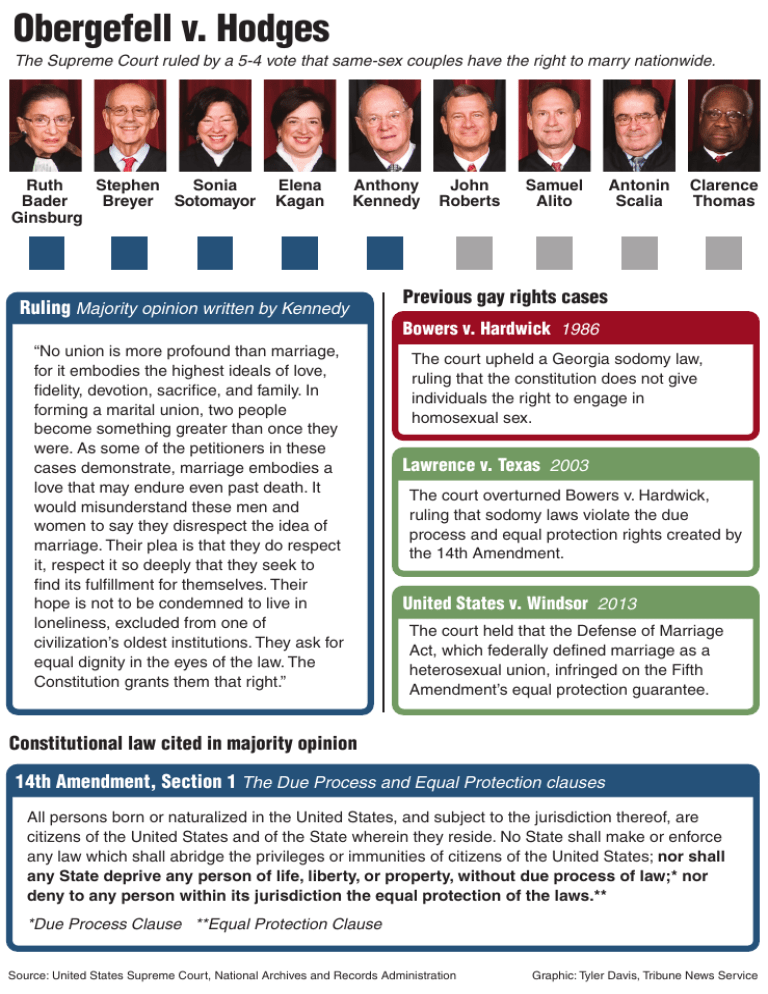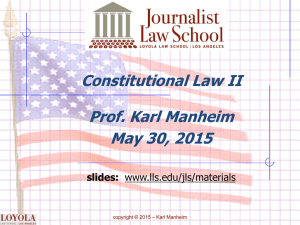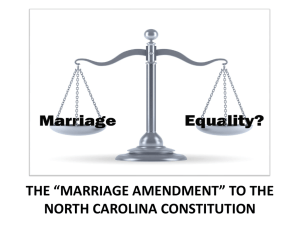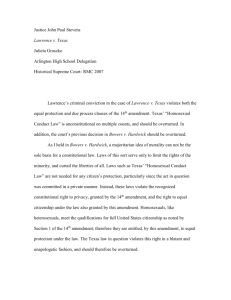Obergefell v. Hodges

Obergefell v. Hodges
The Supreme Court ruled by a 5-4 vote that same-sex couples have the right to marry nationwide.
Ruth
Bader
Ginsburg
Stephen
Breyer
Sonia
Sotomayor
Elena
Kagan
Anthony
Kennedy
John
Roberts
Samuel
Alito
Antonin
Scalia
Clarence
Thomas
Ruling
Majority opinion written by Kennedy
“No union is more profound than marriage, for it embodies the highest ideals of love, fidelity, devotion, sacrifice, and family. In forming a marital union, two people become something greater than once they were. As some of the petitioners in these cases demonstrate, marriage embodies a love that may endure even past death. It would misunderstand these men and women to say they disrespect the idea of marriage. Their plea is that they do respect it, respect it so deeply that they seek to find its fulfillment for themselves. Their hope is not to be condemned to live in loneliness, excluded from one of civilization’s oldest institutions. They ask for equal dignity in the eyes of the law. The
Constitution grants them that right.”
Previous gay rights cases
Bowers v. Hardwick 1986
The court upheld a Georgia sodomy law, ruling that the constitution does not give individuals the right to engage in homosexual sex.
Lawrence v. Texas 2003
The court overturned Bowers v. Hardwick, ruling that sodomy laws violate the due process and equal protection rights created by the 14th Amendment.
United States v. Windsor 2013
The court held that the Defense of Marriage
Act, which federally defined marriage as a heterosexual union, infringed on the Fifth
Amendment’s equal protection guarantee.
Constitutional law cited in majority opinion
14th Amendment, Section 1
The Due Process and Equal Protection clauses
All persons born or naturalized in the United States, and subject to the jurisdiction thereof, are citizens of the United States and of the State wherein they reside. No State shall make or enforce any law which shall abridge the privileges or immunities of citizens of the United States; nor shall any State deprive any person of life, liberty, or property, without due process of law;* nor deny to any person within its jurisdiction the equal protection of the laws.**
*Due Process Clause **Equal Protection Clause
Source: United States Supreme Court, National Archives and Records Administration Graphic: Tyler Davis, Tribune News Service











